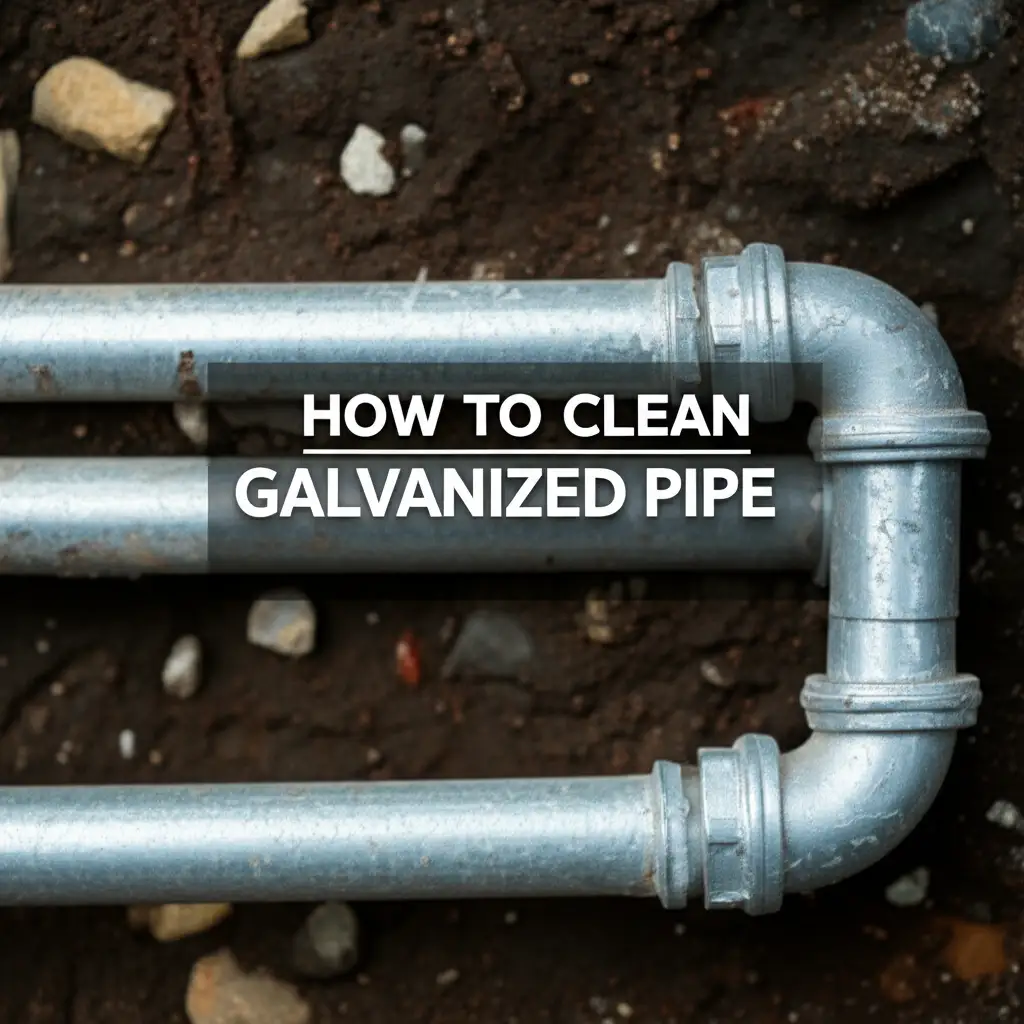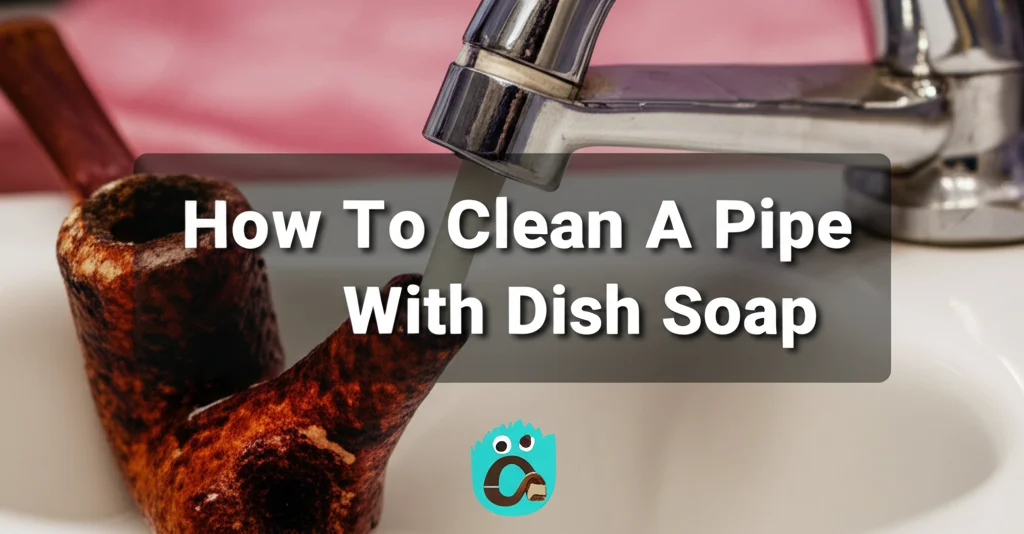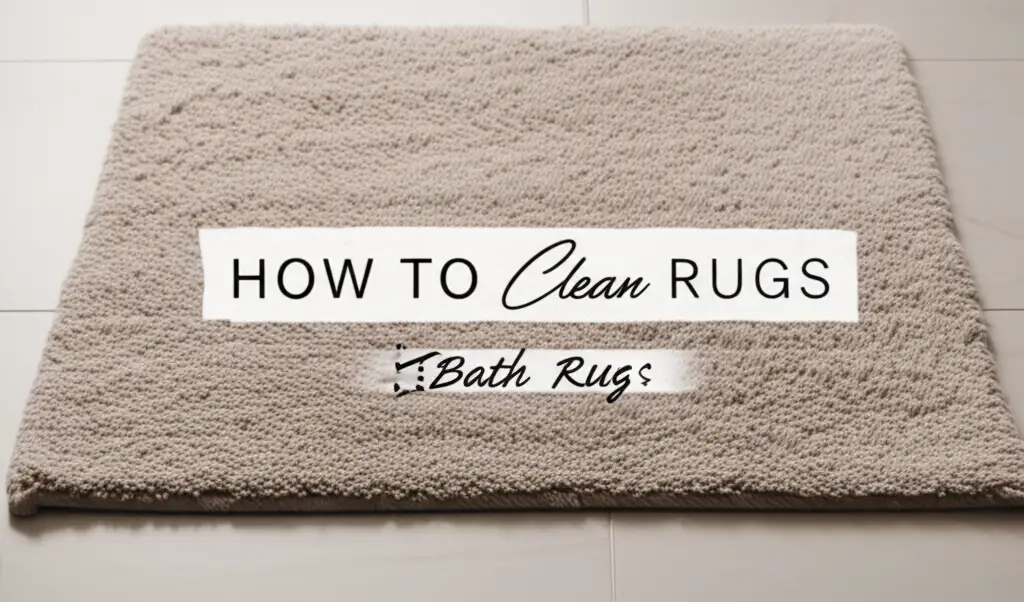· Home Cleaning · 15 min read
How To Clean Weed Resin From Pipe

Effective Ways to Clean Weed Resin from Your Pipe
A clean pipe makes for a better experience. If you own a pipe, you know sticky, dark resin buildup is a common issue. This residue makes your pipe harder to use and affects the flavor of whatever you are smoking. Many people wonder about the best ways to clean weed resin from pipe accessories.
It seems like a difficult task, but it does not have to be. I am here to share easy, effective methods to get your pipe looking new again. We will cover various techniques, from classic alcohol and salt to natural solutions. Keeping your pipe clean is simple once you know the right steps.
Takeaway
- Alcohol and Salt Method: This is the most effective method for glass pipes. It uses common household items.
- Boiling Water: Heat helps loosen stubborn resin. It works well for metal and silicone pipes.
- Natural Cleaners: Vinegar and baking soda offer a less harsh option. They are good for lighter cleaning.
- Regular Maintenance: Clean your pipe often to prevent heavy buildup. This saves time and effort later.
- Material Matters: Choose your cleaning method based on your pipe’s material. Different materials need different care.
How do you clean weed resin from a pipe? You can clean weed resin from a pipe using several methods. The most common involves soaking the pipe in isopropyl alcohol with coarse salt and then shaking it to scrub away the resin. Boiling water, as well as natural cleaners like vinegar and baking soda, also effectively remove sticky buildup from various pipe materials.
Understanding Weed Resin and Its Challenges
Weed resin forms when smoke passes through your pipe. It is a sticky, tar-like substance. This residue is a mix of burnt plant matter, cannabinoids, and other compounds. As you use your pipe, more resin builds up inside. This accumulation narrows the pathways for smoke.
Resin buildup causes several problems. It makes your pipe look dirty and affects its function. A pipe clogged with resin will not pull air properly. This makes drawing smoke difficult. The taste also changes, often becoming harsh or burnt. Thick resin can even block your pipe completely. This means you cannot use it until you clean it.
Cleaning resin can be challenging because it is very sticky and hard. It clings to surfaces inside the pipe. Standard washing with just soap and water often fails to remove it. You need specific tools and solutions to break down this stubborn gunk. Understanding what resin is helps you choose the best cleaning approach. Regular cleaning prevents these issues. It keeps your pipe clear and your smoking experience enjoyable.
Essential Tools and Supplies for Pipe Cleaning
Gathering the right tools makes cleaning your pipe much easier. You do not need many specialized items. Most supplies are found in your home or at a local store. Having everything ready before you start saves time. This ensures a smooth cleaning process.
The most important supply is isopropyl alcohol. Choose a high percentage, like 90% or 99%. This alcohol acts as a solvent. It breaks down the sticky resin effectively. Do not use rubbing alcohol that has added colors or scents. These can leave residue behind.
You will also need coarse salt. Epsom salt, rock salt, or even coarse sea salt works well. The salt acts as an abrasive. It helps scrub away the loosened resin without scratching your pipe. You need enough salt to fill the pipe’s chambers.
Here is a list of other useful items:
- Ziploc bags or containers: These are perfect for soaking pipes. They hold the cleaning solution and allow for shaking. A plastic container with a lid also works.
- Pipe cleaners: These flexible tools reach into narrow parts. They are great for scrubbing the stem and carb holes. Look for stiff pipe cleaners if you can.
- Cotton swabs: Use these for cleaning smaller, hard-to-reach areas. They are good for the bowl and mouthpiece.
- Paper clips or thin pokers: These help dislodge large pieces of resin. Be careful not to scratch your pipe.
- Gloves: Resin is messy. Wearing gloves keeps your hands clean.
- Warm water: You will need this for rinsing your pipe.
- Dish soap: A few drops can help with rinsing and removing any lingering smell.
- Paper towels or a cloth: For drying your pipe after cleaning.
Having these supplies ready ensures you can tackle any resin buildup. You will achieve a truly clean pipe with minimal effort. This preparation step is crucial for effective cleaning.
The Classic Alcohol and Salt Method
The alcohol and salt method is a go-to for many pipe owners. It works especially well for glass pipes. This method combines the dissolving power of alcohol with the abrasive action of salt. It is simple, effective, and uses common household items. I find this method delivers excellent results almost every time.
First, you need to prepare your pipe. Empty any loose ash or debris from the bowl. You can use a paper clip or a poker tool to scrape out larger chunks of resin if needed. This step helps the alcohol work more efficiently. Remember to be gentle, especially with glass pipes.
Next, place your pipe into a Ziploc bag. If your pipe is too large for a bag, use a sealable plastic container. Pour enough isopropyl alcohol into the bag to fully submerge your pipe. Add a generous amount of coarse salt. You want enough salt to act as scrubbing beads. For an average-sized pipe, a few tablespoons should be enough. You need the salt to move freely inside the pipe.
Seal the bag or container tightly. Now, shake it vigorously. The salt inside will act like tiny brushes, scraping against the resin. The alcohol will dissolve the sticky residue. Shake for several minutes, paying attention to areas with heavy buildup. You will see the alcohol turn dark as the resin comes off. If the resin is very stubborn, let the pipe soak in the solution for a few hours or even overnight. This gives the alcohol more time to break down the grime. For extremely tough resin, you can consider using a method to clean stubborn sticky residue, similar to how one might clean caramel out of a pot.
After soaking and shaking, remove the pipe from the bag. Rinse it thoroughly under hot running water. Make sure all the alcohol and salt are flushed out. You can use cotton swabs or pipe cleaners to scrub any remaining bits. If needed, repeat the process. Finally, let your pipe air dry completely before using it. This method truly gets your glass pipe sparkling clean.
Boiling Water and Dish Soap Technique
The boiling water and dish soap technique offers a great alternative to alcohol. This method is especially useful for pipes made of metal or silicone. It relies on heat to soften the stubborn resin, making it easier to remove. I often use this for my silicone pieces. This technique avoids harsh chemicals, which some prefer.
Start by heating a pot of water on your stove. Bring the water to a rolling boil. While the water heats, remove any large, loose pieces of ash or resin from your pipe. You can use a poker tool for this. Make sure your pipe is safe for high heat. Glass and metal pipes usually tolerate boiling water well. For silicone pipes, ensure they are made from food-grade, heat-resistant silicone. Placing certain plastics or other materials in boiling water can cause damage.
Once the water boils, carefully place your pipe into the pot. Make sure the pipe is fully submerged. Let it boil for 10 to 20 minutes. The boiling water will soften the resin. You will see some of the gunk begin to loosen and float away. For very stubborn buildup, you might need to boil it longer. Always use tongs or a heat-resistant utensil to handle the hot pipe.
After boiling, carefully remove the pipe from the hot water. Place it on a heat-proof surface. The pipe will be very hot. Add a few drops of dish soap to the pipe. Use a pipe cleaner or cotton swab to scrub the inside. The resin should now be much softer and easier to remove. Rinse the pipe thoroughly under warm running water. Ensure all soap residue is gone. You might need to repeat the scrubbing and rinsing until the pipe is clean. This method is also effective for similar materials, for example, when you want to clean resin out of silicone cups. Let your pipe air dry completely before using it again. This technique is simple and very effective for certain pipe types.
Natural Cleaning Solutions: Vinegar and Baking Soda
For those who prefer to avoid harsh chemicals, natural cleaning solutions are a good choice. Vinegar and baking soda are common household items. They offer an eco-friendly way to tackle lighter resin buildup. I find this method excellent for regular maintenance cleanings. It also works well for glass, ceramic, and some metal pipes. For similar household cleaning applications, you can explore how to clean glass stove tops with vinegar.
To use vinegar, place your pipe in a container. Fill the container with white vinegar until the pipe is fully submerged. You can also add a tablespoon or two of baking soda. The combination of vinegar and baking soda creates a fizzing action. This helps to loosen grime. Let the pipe soak for several hours, or even overnight, depending on the resin buildup. The longer it soaks, the more the resin will soften.
After soaking, remove the pipe from the vinegar solution. Rinse it thoroughly under warm water. You will likely see some of the resin already gone. For any remaining spots, create a paste using baking soda and a small amount of water. Apply this paste to the affected areas. Use a pipe cleaner or an old toothbrush to scrub gently. The baking soda acts as a mild abrasive. It helps scrape away the softened resin without scratching the surface. This method is effective for various cleaning tasks, similar to how you might clean with vinegar and baking soda in other household applications.
Rinse the pipe again thoroughly to remove all the baking soda and loosened resin. You might need to repeat the scrubbing and rinsing steps for stubborn spots. While vinegar and baking soda are effective, they might not be as strong as isopropyl alcohol for heavy, caked-on resin. However, they are great for maintaining a clean pipe and preventing severe buildup. Always ensure your pipe is completely dry before using it. This natural approach is gentle on your pipe and safe for your home.
Deep Cleaning and Maintenance Tips
Sometimes, resin buildup is so severe that it needs a deep clean. This often happens if you neglect your pipe for a long time. Deep cleaning requires a bit more effort. It might involve stronger techniques or specialized tools. But it is worth it for a fully functional pipe. I have had to do this many times.
For very caked-on resin, start with a long soak. Submerge your pipe in 90% or 99% isopropyl alcohol for at least 12-24 hours. This prolonged exposure helps break down even the most stubborn gunk. After soaking, try the alcohol and salt shake method again. The resin should be much softer now.
If shaking alone does not work, you might need scraping tools. Small metal pokers, dental picks, or even straightened paper clips can help. Carefully scrape the inside of your pipe. Work slowly to avoid scratching or damaging the material. Be especially gentle with glass or ceramic pipes. For metal pipes, a small wire brush might be useful for scrubbing the bowl. Always push the resin out towards the largest opening.
Preventive maintenance is key to avoiding heavy resin buildup. I cannot stress this enough. Cleaning your pipe regularly saves you a lot of hassle. Aim to clean your pipe at least once a week if you use it daily. A quick rinse and scrub with alcohol and salt after every few uses can prevent serious accumulation.
Another great tip is using screens. Screens fit into the bowl of your pipe. They prevent small pieces of ash and plant matter from entering the stem. This reduces the amount of resin that builds up in hard-to-reach areas. Change your screens often. They get clogged quickly. Keeping a few extra screens on hand is always a good idea. By implementing these deep cleaning methods and adopting regular maintenance habits, your pipe will stay cleaner for longer. This makes for a more enjoyable experience every time.
Cleaning Specific Pipe Materials
The type of material your pipe is made from greatly influences the best cleaning method. Each material has different properties. Some are more durable, while others need gentle care. Knowing your pipe’s material helps you choose the safest and most effective cleaning approach.
Glass Pipes
Glass pipes are popular and generally easy to clean. They are non-porous, so resin does not deeply stick. The classic alcohol and salt method is ideal for glass. The isopropyl alcohol dissolves the resin, and the salt scrubs it away. You can also use boiling water for glass pipes. However, avoid sudden temperature changes. Do not put a cold glass pipe into boiling water, or vice versa. This can cause thermal shock and crack the glass. Always let glass warm up or cool down slowly.
Metal Pipes
Metal pipes are very durable. They can withstand most cleaning methods. The alcohol and salt method works well for metal pipes. Boiling water is also an excellent option. For stubborn resin, you can use a small wire brush inside metal pipes. Be careful not to scratch any finishes. Metal pipes often have threaded parts. Make sure to clean these thoroughly. Resin can build up in the threads, making it hard to twist parts apart.
Silicone Pipes
Silicone pipes are flexible and heat-resistant. They are virtually unbreakable, which is a big plus. You can easily clean silicone pipes with the boiling water and dish soap technique. They can withstand high temperatures. You can also put them in a freezer. Freezing makes the resin brittle. Then you can flex the pipe to crack the resin off. Alcohol also works, but some people worry about long-term effects on silicone. I find boiling water to be the simplest for silicone. You can learn more about cleaning resin out of silicone cups for similar cleaning challenges.
Wood Pipes
Wood pipes are the most delicate. They require special care. Never soak a wood pipe in alcohol or water. This can cause the wood to swell, crack, or warp. Alcohol can also dry out or damage the wood’s finish. For wood pipes, gently scrape out loose resin with a poker tool. You can use cotton swabs lightly dampened with a small amount of isopropyl alcohol. Wipe down the inside quickly, then wipe dry. Some people use specialized wood pipe cleaners or natural oils to condition the wood. Regular, gentle cleaning is essential for wood pipes.
Ceramic Pipes
Ceramic pipes are similar to glass in terms of cleaning. They are non-porous. The alcohol and salt method is effective. However, ceramic is more brittle than glass. Be extra careful not to drop or bump a ceramic pipe. Avoid harsh scraping tools that could chip the surface. Gentle shaking and thorough rinsing are best for ceramic pipes. Do not subject them to extreme temperature changes, just like glass. Handle ceramic pipes with care during the entire cleaning process.
FAQ Section
How often should I clean my pipe?
Clean your pipe regularly to prevent heavy buildup. For daily users, cleaning once a week is ideal. If you use it less often, clean it every few uses. Frequent light cleaning is easier than occasional deep cleaning. This keeps your pipe performing its best.
Can I use boiling water on all pipes?
No, boiling water is not safe for all pipes. It works well for glass, metal, and silicone pipes. Do not use boiling water on wood pipes, as it can cause damage like warping or cracking. Always confirm your pipe material is heat-resistant before using this method.
What if resin is really stuck?
For very stubborn, caked-on resin, try a longer soak. Submerge your pipe in 99% isopropyl alcohol for 12-24 hours. After soaking, use small scraping tools like dental picks or straightened paper clips to carefully dislodge the remaining bits. Repeat the alcohol and salt shake method if needed.
Is there a way to prevent resin buildup?
Yes, you can reduce resin buildup. Use screens in your pipe’s bowl. Screens act as a filter, stopping ash and plant matter from entering the stem. Also, clean your pipe frequently. Regular, light cleaning prevents resin from hardening into thick layers.
Can I use dish soap instead of alcohol?
Dish soap alone is not strong enough to dissolve sticky resin. It can help loosen some grime, especially when combined with boiling water. However, for effective resin removal, you need a solvent like isopropyl alcohol. Dish soap is best for rinsing and removing residue after cleaning with alcohol or hot water.
Does cleaning affect the taste?
Yes, cleaning your pipe significantly improves the taste. Resin buildup makes smoke taste harsh, burnt, and unpleasant. A clean pipe allows for a pure, clean taste. It ensures you only taste your chosen material, not stale residue. Regular cleaning enhances your overall experience.
Conclusion
Cleaning weed resin from your pipe is a straightforward task. You now have several effective methods at your disposal. Whether you prefer the classic alcohol and salt approach or gentler natural solutions, a clean pipe is within reach. Remember that regular maintenance saves you time and effort in the long run. A well-maintained pipe performs better and provides a much more enjoyable experience. I have always found that a clean pipe makes my sessions far more pleasant.
Always consider your pipe’s material when choosing a cleaning method. Glass, metal, silicone, and wood each require specific care. Gather your tools, follow the steps, and soon your pipe will be spotless. Take pride in your clean smoking accessories. A sparkling pipe reflects a responsible owner and offers the best possible experience. Make cleaning a regular part of your routine. You will appreciate the fresh taste and smooth draw every time. Keep your pipe pristine to enjoy it to the fullest.
- pipe cleaning
- resin removal
- cannabis pipe maintenance




